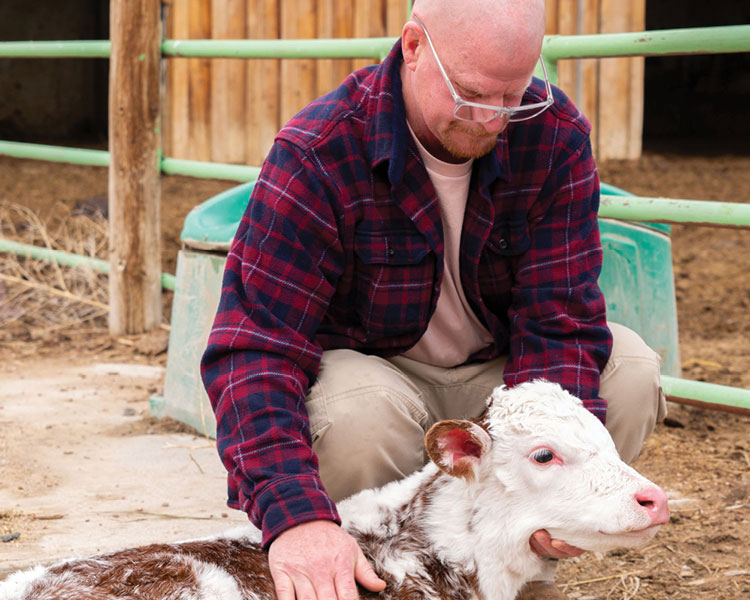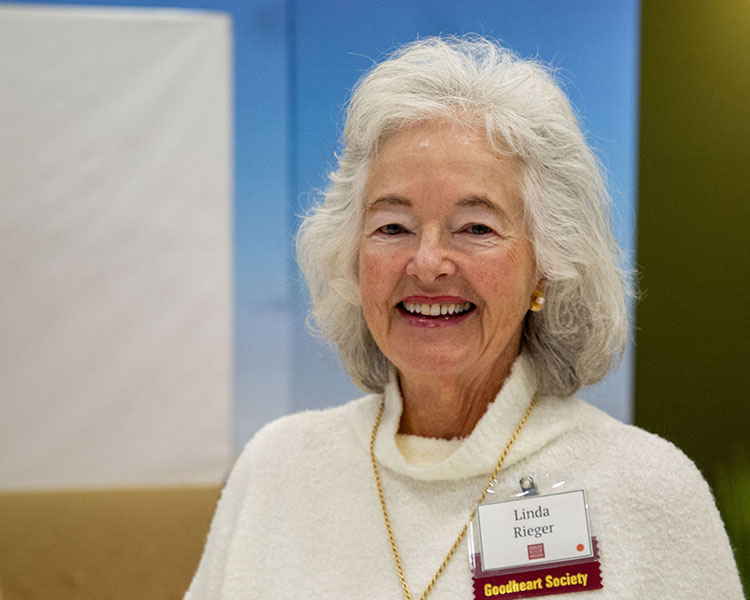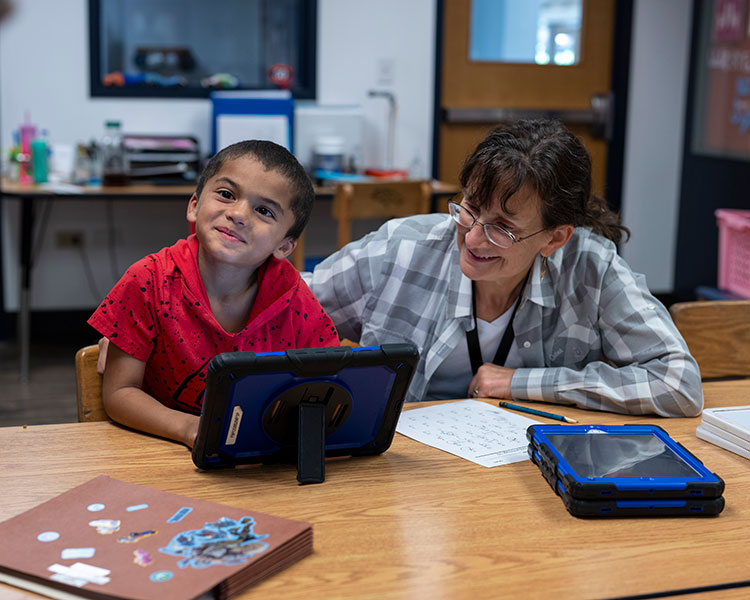Being on the front lines at the Mission means showing up physically, mentally and spiritually every day to be a shining light for those living in darkness. “To be on the front lines means to be here with our guests no matter what,” said Lynette Badasarian. “We need to show up, not just for the guests, but for our team.” Lynette leads 48th Avenue Center’s Guest Services team, which serves as the first point of contact as guests enter our shelters. Here’s a glimpse into their daily tasks.
A Look at Lynette’s Workday
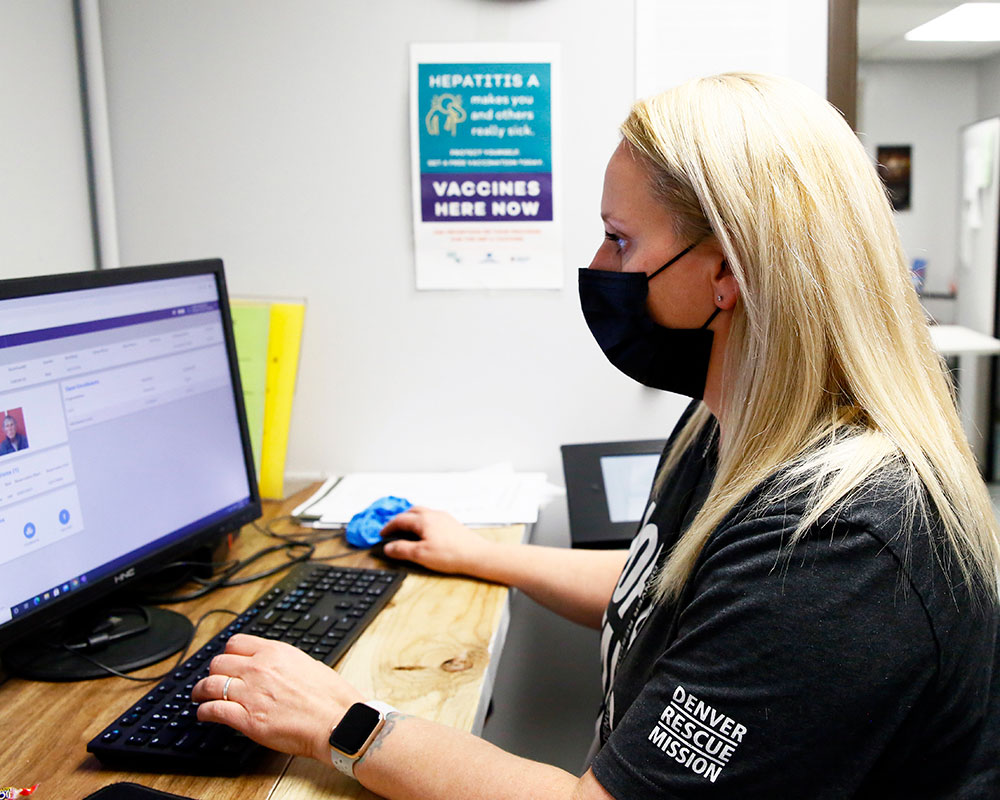

When Lynette arrives at the 48th Avenue Center* at 7 a.m., her first task is to update the guest information in our system to ensure organization, safety and efficiency. She reviews the bed check numbers from the previous night so her team can see how many beds are available for the day.
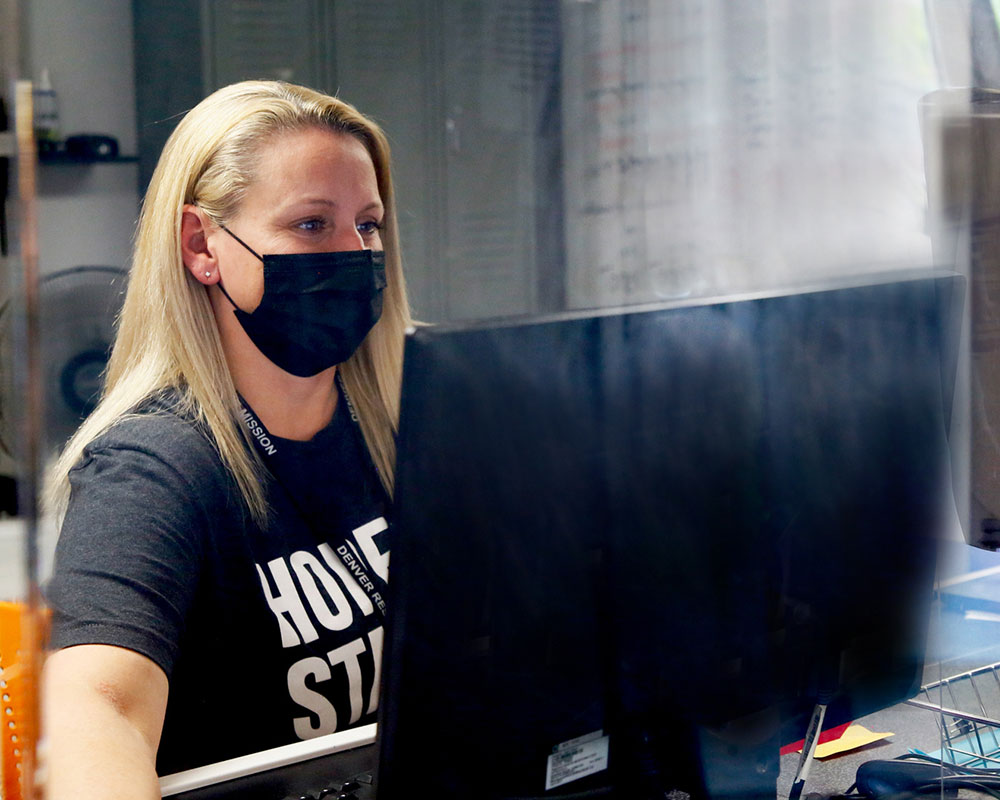

At 8 a.m., the doors open for guests. Lynette welcomes them with a warm smile, knowing that behind each guest is a unique story and reason for facing homelessness. She scans their Mission ID cards or creates ID cards for new guests, assigns them to beds and gives out hygiene or clothing items they may need. She also explains the operations of the shelter, including hours of entry, meal times, and more.
“We want people to come in the door feeling like they know how things work, because that gives them more sense of control and de-escalates them in an emotional crisis experience,” said Deb Butte, director of homelessness resolution.
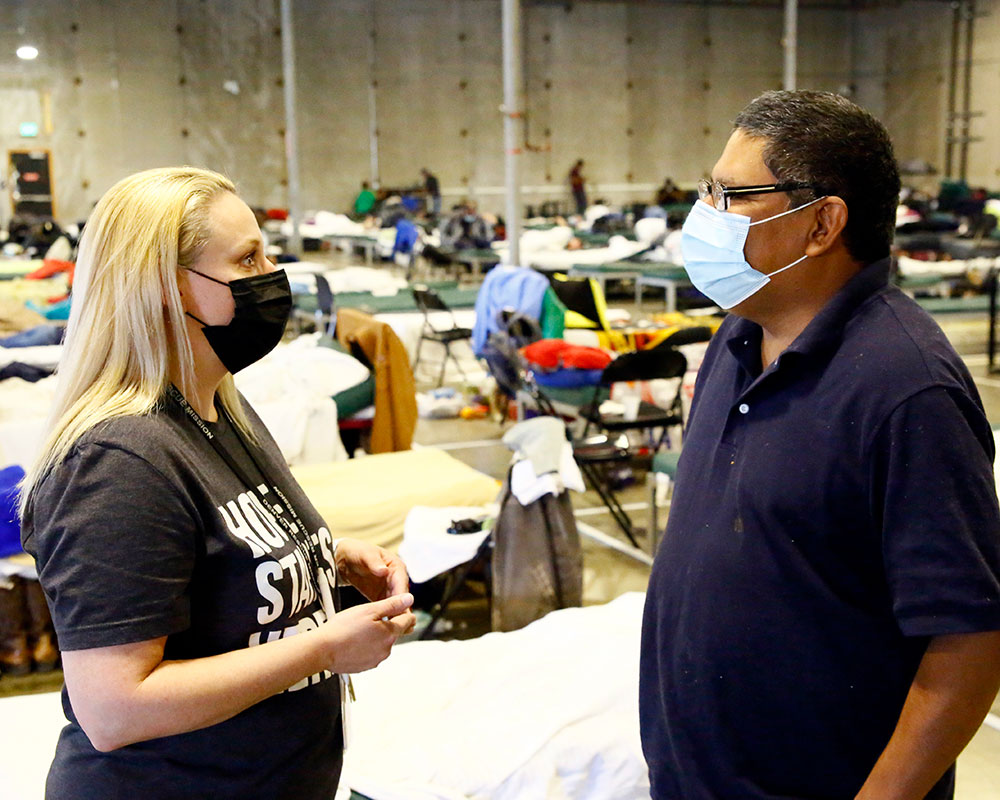

Making time throughout the day to talk with guests and hear their stories is a huge priority for Lynette and her team. For many guests, talking with Mission staff is the first sense of normalcy and community they’ve had in a while.
“It has been mind-blowing [to hear] the stories that people have been through, and sometimes
guests just want you to listen without judgment. A smile and a friendly ear are often all they want. They just want to be heard.”
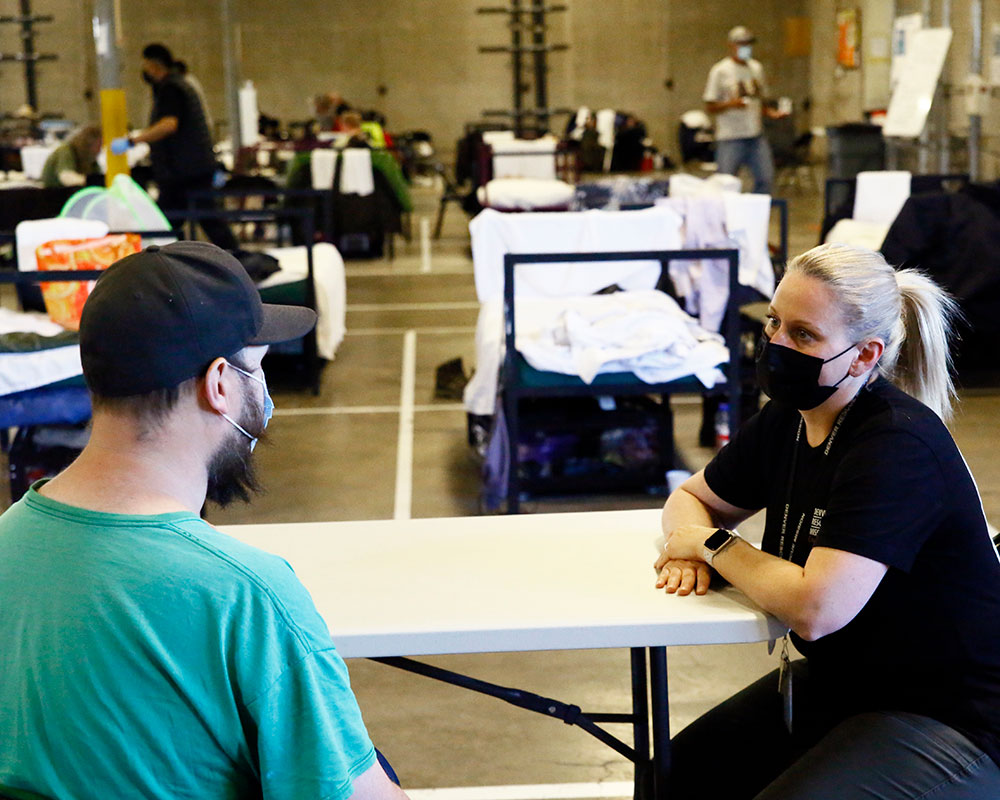

The Guest Services team also helps guests schedule appointments with case managers who connect them to resources, programs and services that help them transition out of homelessness and secure housing.
“What we want to do is get people in and out [of the shelter] as fast as possible so they don’t end up in a cycle,” Lynette said. “A lot of our guests are coming in and getting the help they need.”
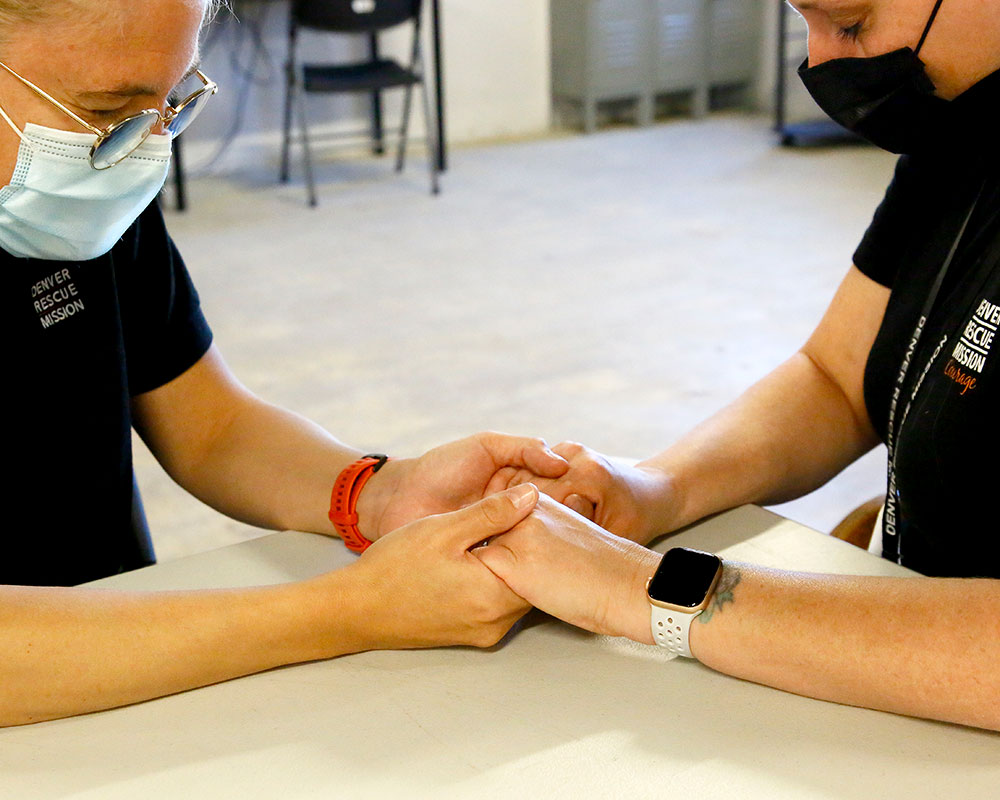

Lynette and her team have daily conversations with guests about their cause of homelessness.
At times, this can lead to vicarious traumatization for our frontline staff, which is when staff internalize the pain and trauma of our guests due to the amount of difficult stories they hear and empathize with. This makes debrief and prayer with other employees crucial.
“I think the biggest challenge is the emotional toll the job can take,” Lynette said. “Trying to
de-escalate [conflict] can be really hard and heartbreaking at the same time. I debrief a lot. I say a lot of prayers. I know that my team can talk at any time if I’m just really struggling.”
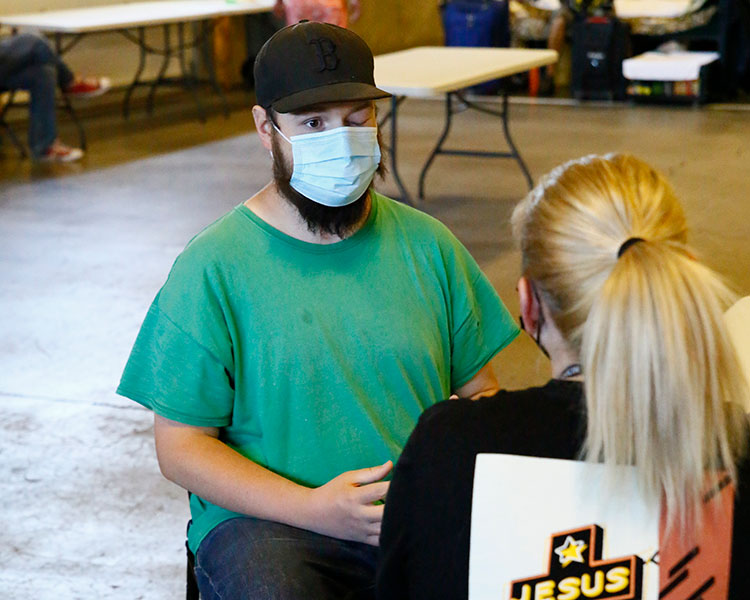
“It is about the little victories, like a guest getting food stamps after waiting on the phone for an hour and [seeing his] excitement. I’m blessed and thankful for the rapport I’ve built among the guests. They teach me more than I will ever teach them. They’re teaching me about resiliency and how to appreciate the little victories in life, because if you don’t appreciate the little victories, the big ones don’t taste as good.”
– Lynette
The dedication of frontline staff members like Lynette is essential in breaking the cycle of homelessness. Guests need to feel supported, not alone; accepted, not judged. Your support is enabling us to do this work.
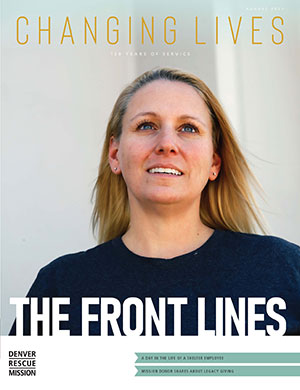
Download Full Newsletter
- Pathways of Hope
- Back to School Backpacks
- Letter From Our New VP
- Mission in My Words




